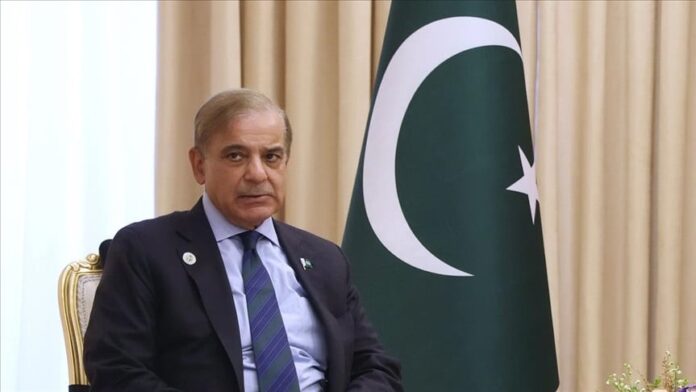ISLAMABAD: Prime Minister Shehbaz Sharif assented to head the newly-formed Cabinet Committee on Energy (CCoE) himself in a bid to address challenges and enhance efficiency in the energy sector.
The Cabinet Division, announcing the formation of the Cabinet Committee on Energy (CCoE) on Friday, issued a notification in this regard.
To be chaired by the prime minister, the committee is comprised of key ministers and officials, including the Minister for Economic Affairs, Minister for Finance, Minister for Petroleum, Minister for Planning, Development & Special Initiatives, and Minister for Power.
Additionally, top officials from relevant divisions and regulatory bodies, such as the Finance Division, Power Division, Petroleum Division, Law and Justice Division, National Electric Power Regulatory Authority (NEPRA), and Oil and Gas Regulatory Authority (OGRA) have been co-opted as members, as per a notification issued by the Cabinet Division.
According to the Cabinet Division’s notification, in the absence of the prime minister, the Minister for Petroleum will chair the meetings of the CCoE.
The Terms of Reference (ToRs) outlined for the CCoE underscore its pivotal role in ensuring the smooth implementation of energy projects currently underway or in the pipeline, in particular projects falling under the umbrella of the China-Pakistan Economic Corridor, well within timelines stipulated for these projects.
The committee is also tasked with identifying and removing bottlenecks in the expeditious implementation of these projects and deficiencies in the existing legal and institutional framework governing the energy sector and formulating reform initiatives.
Similarly, the CCoE is further mandated to review the current energy policy to rectify its weaknesses.
Likewise, CCoE will formulate policies and plans on energy conservation and ensure regular monitoring of the implementation phase, conduct inter-ministerial coordination whenever required, but at least once every fortnight, and ensure adequate stock of petroleum products in the country.
Furthermore, the committee aims to develop efficient energy markets through deregulation within limits allowed by regulators; reduce theft losses in the energy sector, and pass on benefits to consumers.





This move signals that the government views energy as a critical national priority. It could be due to concerns like energy security, rising prices, or a push for renewable energy transition.